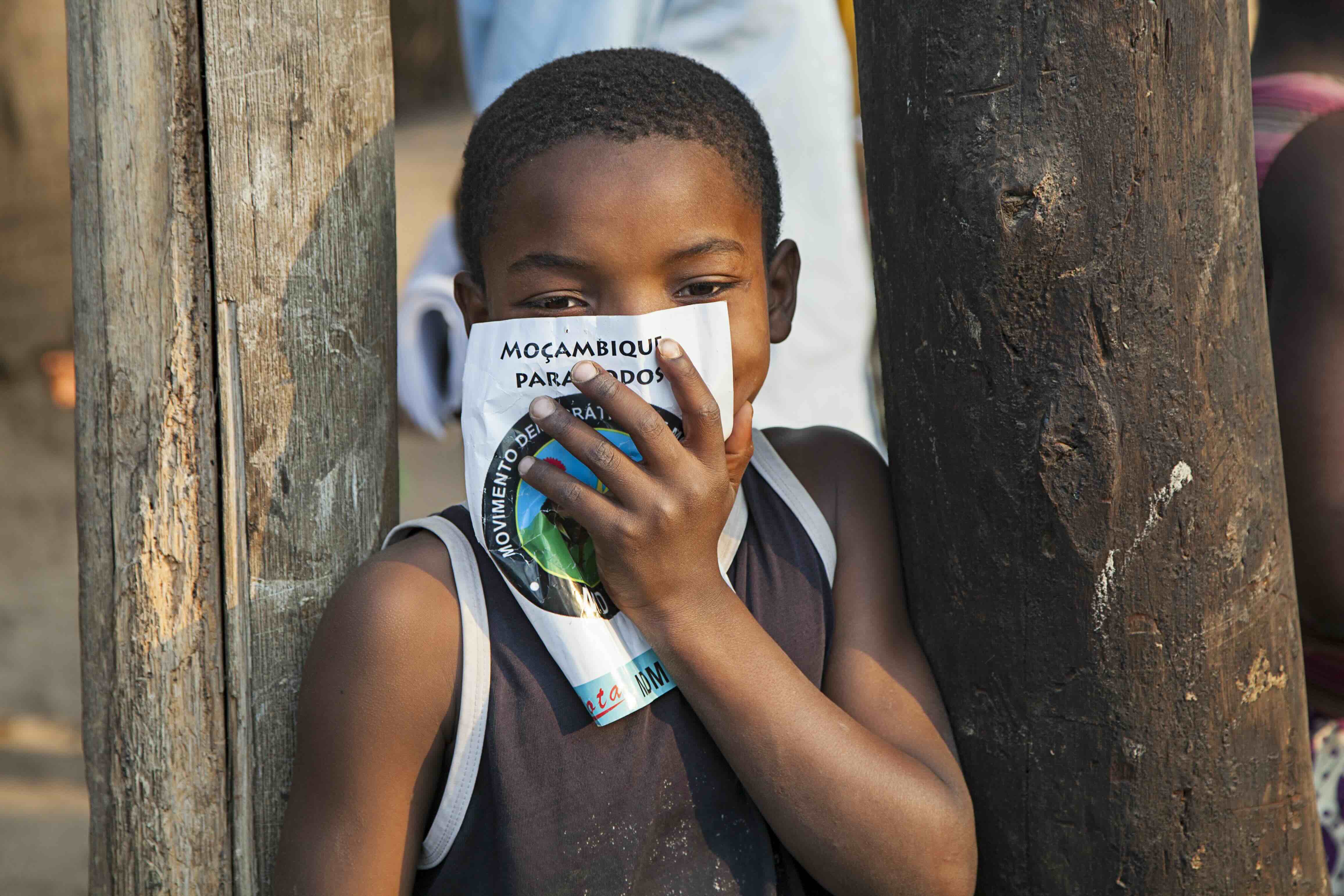SADC
A look at Botswana, Namibia, and Mozambique ahead of their elections

Small kid from Northern Mozambique holding an electoral poster saying "Mozambique for everyone"
© ShutterstockThis year, major elections are happening across the world. In Africa, about 19 elections are expected to take place throughout the year. Many democracies are being tested. In Southern Africa, the Republics of Botswana, Namibia, and Mozambique are democracies that must pass this test. This article analyses and critically engages on key issues in Botswana, Namibia, and Mozambique’s upcoming elections. Paying attention to the political context, legal framework, Election Management Bodies (EMBs), voter registration, political parties, campaign finances, the role of media, and civil society as elections unfold in these countries. In brief, the article highlights what African citizens must know about elections in these countries.
The context and key issues in the elections
The upcoming elections in these countries are expected to be held in a highly competitive electoral and political environment. The pre-election assessment missions held by the African Centre for Governance show that these elections are held at a time when these countries are facing common political and economic challenges, making these elections crucial for economic recovery, and growth as well as a concern for regional peace and security. Historically, Botswana (since 1966) and Namibia (since 1990) when both countries got independence have always been stable and had peaceful elections with no serious electoral violence. The Botswana Democratic Party (BDP) has been the dominant political force in the country, promoting economic growth and stability. Similarly, Namibia’s South West Africa People's Organisation (SWAPO) party has led the country since independence and has promoted the same.
Citizens of these countries are generally known to be peaceful and exemplary among African citizens. In both countries, some stakeholders who met with the African Centre for Governance Pre-Election Assessment Mission expressed confidence in the administration of the electoral process. While opposition political parties expressed dissatisfaction with the electoral processes. In Botswana, the incomplete constitutional review process and lack of state funding for political parties were flagged as a major concern. A situation they argued may lead to an unlevel playing field and will impact the credibility of the outcome of the elections.
In Namibia, stakeholders have raised concerns over the gaps in the legal framework particularly on the disclosure and accountability of the private funds received by political parties. Transparency for private funding of parties is not legally required. Opposition parties also expressed discontent with the donor funding cap, a scenario they think undermines their fundraising efforts. In addition, they contend, there is no transparency on campaign finance, as only parties with seats in parliament are obliged to submit audited reports to the Electoral Commission and parliament for scrutiny. This situation, they argue, has resulted in an unlevel playing field between the ruling party and the opposition parties. Furthermore, the opposition expressed dissatisfaction over a perceived secret meeting held at the state house between the President and the Electoral Commission of Namibia, with the Secretary-General (SG) of the ruling party in attendance. They argued that the presence of the ruling party SG at the meeting posed a threat to the credibility of the Electoral Commission as an independent electoral management body.
Like Botswana and Namibia, Mozambique's ruling party, FRELIMO, has maintained power since independence in 1975. However, contrary to these, the country’s history has been marked by civil conflict which has constantly undermined economic development. In the aftermath of the 2023 local government elections, political tensions with the opposition party RENAMO have led to instability. This is a build-up to an existing perception among stakeholders that in Mozambique, elections have often been marred by allegations of fraud and violence.
Of concern, stakeholders in Mozambique have raised concern over inadequate stakeholder engagement by the Electoral Commission ahead of the elections which has created tensions in the country. The pre-election assessment missions observed dissatisfaction about the voter registration exercise in the country which took place during the rainy season. This exercise is criticised for low youth voter registration turnout. The efforts by the Electoral Commission to encourage the Youth vote are seen as poor, unlike previous elections in 2019. Furthermore, there are fears about decreasing initiatives on civic and voter education, which is attributed to a passive civil society. More concerns were noted regarding the late release of state funding to the Electoral Commission which is seen as a deliberate attempt by the state to compromise its work. Other concerns include the late revision of the election legislation, the lack of trust among stakeholders, the alleged threats to the Electoral Commissioners by the aggrieved public, and the general insecurity in many parts of the country which are seen as a threat to the credibility of elections.
As these countries prepare for their upcoming elections, the concerns noted above have created a perception of an unlevel playing field ahead of elections. All eyes are on these countries and fears of political instability in the region loom steadily. Lessons from these three republics show that the dominance of liberation movements in these three countries is under threat, which has heightened tensions and panic among these political movements. While the EMBs in these countries have expressed preparedness, there is an increasing lack of trust among stakeholders, which makes these elections a peace and security concern in the region. The global community should remain concerned as these elections draw closer. If the above concerns are not addressed, the future will see a more unstable and fragile SADC region.
